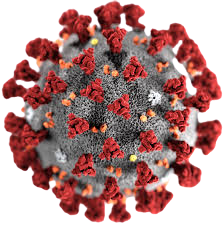Foreign Doctors and Medical Professionals
in Germany
Learn how to get a doctor's work permit in Germany
We help doctors, dentists, nurses and pharmacists to find the right job in Germany
Еake care of yourself
As a precautionary health measure for our students and teachers in light of COVID-19, offline-courses in Hanover may be unavailable or delayed. We apologize for any inconvenience this may cause and appreciate your patience. This message will be updated as the situation changes.
WHAT GIVES EMPLOYMENT IN GERMANY

Career growth and development
We will employ you in Germany on absolutely the same terms as your future German colleagues. Working in a German clinic, in addition to all the obvious benefits, you also get the opportunity to attend thematic conferences, to get acquainted with the latest science in person.

Modern medical equipment
Employment in German clinics will allow you to work in the best conditions, using modern equipment. You do not have to retrain, because European countries accept doctors with the formation of any post-Soviet country, which means you will not have to retrain. To start working, it is enough to study the basics of the language and medical terminology in German.

High standards of living
There are a lot of great opportunities for qualified doctors to help meet this skills shortage, especially in smaller towns and more rural areas. Germany has so much to offer in terms of culture and lifestyle and is a great location to complete further education and training.

ABOVE AVERAGE SALARY
Contrary to popular belief, a high-paying job as a doctor in Europe is available to almost everyone. Even if now you are forced to earn money in several places at once, work in two shifts and receive a penny for it, then becoming a doctor in Germany you can easily afford everything that you could not do in your homeland.
WHY CHOOSE US
1

Individual & Personal Advice
2

Interactive Language Training
3

Visa Application Assistance
4

Certified Translation of all Documents
5

Preparation Course for FSP
6

Applying for a job
TURNING TO US, YOU CAN
- Make a dream career
- Increase the level of remuneration
- Get additional education at a European level
- Become an exclusive specialist
WE PROVIDE
FULL RANGE OF SERVICES
FULL RANGE OF SERVICES
1
Online & offline German language courses from A1 to C1 as well as the preparation course for the 'Fachsprachenprüfung'.
2
Visa assistance, including an individual set of certified documents needed for a potential job.
3
Diploma accreditation, registration in the Office for Migration, accommodation, residence registration, insurance, financial consultation.
4
Preparing for a German job interview and the signing of an employment contract.
DOCUMENTATION YOU NEED
Here's a full list of the paperwork you will need to apply for a licence or provisional licence to practice medicine in Germany.
Your birth certificate
Your marriage certificate
Your passport or proof of citizenship
A Curriculum Vitae with photograph including a description of the course of study and professional career
A proof of complete medical training
A reference of the last medical employer
A certificate of good standing
A clearance certificate from the supreme health authority of your home country, certifying that you are entitled to practice medicine
A confirmation of knowledge of written and spoken German
A proof that a German licence to practice medicine has been neither filed, nor will be filed, in another federal state. Otherwise, please explain your situation in writing
Medical certificate which confirms that there are no health-related reasons that you are incapable of, or unsuitable to, practice medicine. This certificate must have been issued in the last three months before the filling of your application
A letter confirming employment at the hospital
Are you considering a career in the field of medicine in Germany?
2Workin.de will help you to launch your career. We will provide you with expert guidance customized to your needs throughout the entire process.
2Workin.de will help you to launch your career. We will provide you with expert guidance customized to your needs throughout the entire process.
FAQ
We're here every step of the way to help you make the move to Germany. We can find you a job vacancy and prepare you for a job interview. We can help you with diploma accreditation, information support, residence registration, registration at the Office for Migration and financial consultation.
Germany is in need of doctors from all disciplines, but there is particular demand for
- neurologists
- anesthesiologists
- rehabilitologists
- psychiatrists
- pediatricians
You can expect to earn an average starting salary of around €49,000 a year, and doctors can expect to be well paid throughout their careers. But do remember with that comes a big workload and a lot of responsibility. An average salary for an Assistenzarzt, or assistant doctor, is €65,000 per annum, while a Facharzt, or specialist, can expect in the region of €80,000 per annum. At the highest level chief physicians have an average salary of €278,000 per annum.
- STEP 1: Choosing the right visa (non-EU citizens)
The EU Blue Card is a work and residence permit for non-EU nationals, and it gives you a path to permanent residence and EU citizenship. It's aim is to attract skilled professionals from non-EU countries to work in Germany. It gives recipients benefits over the basic work permit, such as putting you on a fast track to permanent residency. But there are stringent conditions attached to the EU Blue Card, for instance, you will need a job offer with a starting salary of €38,688 per annum, and your degree must be recognized in Germany.
If you don't qualify for an EU Blue Card don't worry, you may be able to get a 'residence permit for the purpose of gainful employment'. This may be a longer process than acquiring an EU Blue Card, but it is a valid and much used residence permit for Germany, and ultimately gives identical rights as the EU Blue Card.
- STEP TWO: Gaining a medical license
There are several elements to gaining your 'Approbation'. Firstly, you need a definite job offer in writing before you apply. You will also need medical standard German at level C1. Next, your qualifications gained in your country of origin need to be gauged as equivalent to similar German qualifications. Evaluation of your academic qualifications by the German state can be lengthy, particularly for diplomas issued in non-EU countries.
You can apply for a 'Berufserlaubnis', or temporary medical licence, if you have been offered a job. This enables you to work in Germany while your 'Approbation' application is being processed and scrutinized.
The good news is that with both the 'Approbation' and the 'Berufserlaubnis' you can begin to work in Germany, either by studying and working in your medical speciality simultaneously, or as a medical resident. While this can be a lengthy process that might take a few years, you are able to work and earn money. During this time you receive the title of 'Fachartz', or medical specialist.
- STEP THREE: Language requirements
Therefore you need to prove that you are fluent in general German to at least B2-level.
To gain your 'Approbation', you may need to take an exam that tests your oral and written German medical knowledge, called the 'Fachsprachenfrüfung'. We offer courses that prepare you for this, working closely with specialized tutors with extensive medical language knowledge and experience.
Our Partners
We work with the leading partners globally!




OUR TEAM
Our team consists of highly qualified and experienced professionals that are passionate and dedicated to our clients
- Sofia GloukhChief Executive Officer
- Vadim SenderskiChief Executive Officer
- Tatiana ArnoldHead of HR
- Michael MovshovychManager - Eastern Europe
OUR CONTACTS
Feel free to write and call us. We really love to communicate with our clients.
Tel.: +49 176 72260604
Email: info@2workin.de
WhatsApp: +49 511 10553795
Opening Hours:
Mo - Fri: 10:00 - 16:00
Sat & Sun: Closed
Email: info@2workin.de
WhatsApp: +49 511 10553795
Opening Hours:
Mo - Fri: 10:00 - 16:00
Sat & Sun: Closed
Leonhardtstr. 2
30175 Hannover
D-Germany
30175 Hannover
D-Germany
*Our General Terms and Conditions apply. Information on data protection can be found in our privacy policy.


